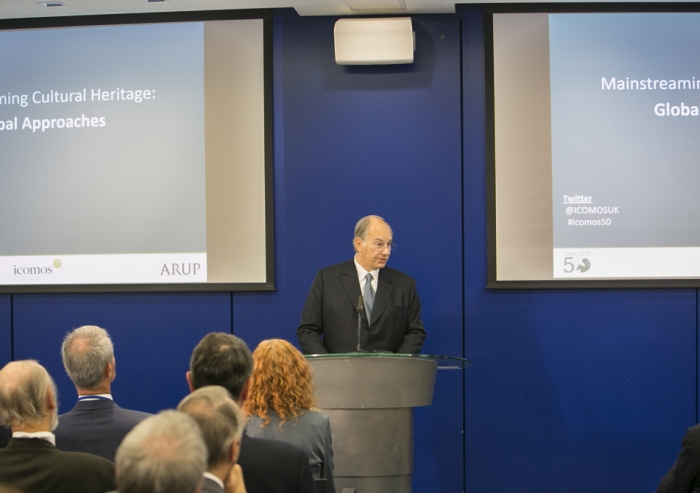Presentation of Academic Awards, London University
Dr Taylor,
Professor Lawton,
Distinguished Guests,
It gives me very great pleasure to be here today and to accept Dr Taylor’s invitation to present the first Awards resulting from a collaborative programme which holds considerable promise for the future. The Institute of Ismaili Studies is indeed fortunate in being able to extend the scope of its cooperation with a University which is renowned for its international outlook and whose Institute of Education is held in such very high esteem throughout the world. Nor can I let this occasion pass without adding my sincere congratulations to Dr Taylor on his becoming Principal-Designate of the University and to Professor Lawton on his promotion to be Director of the Institute. You have both shown our Institute a consideration and helpfulness for which we shall always be grateful and we all wish you both the greatest success in your new appointments.
Dr Taylor has been kind enough to refer to the network of Aga Khan educational institutions in the Third World. At the apex of this educational structure stands the Aga Khan University, a major aim of which is to identify the openings for new educational programmes in the developing countries and in addressing those openings to set the highest possible standards. This pursuit of excellence is the inspiration of our schools at every level and an important factor in achieving it is the interchange of ideas and skills with suitable institutions in the Western World. The new joint course which starts this month between the University of London Institute of Education here, our own Institute of Ismaili Studies and McGill University in Canada will be a prime example of how beneficially these interchanges can be organised. Future students who qualify from this course will take new ideas and techniques to invigorate our schools in the Third World, and to bring about the transformations which current problems demand, as I hope will you, who are about to receive your awards today.
This is therefore an appropriate moment to reflect briefly on the present role of education in the Islamic world.
The Islamic world, as we all know, is being compelled to face two challenges at the same time: that of dealing with the Islamic countries’ own indigenous problems and that of adapting Twentieth Century Western technology to those countries’ development needs. How we meet these challenges will condition our ability to make progress both within our own context and in the context of the World as a whole. Education is crucial to this, because education determines people’s approach to the widest problems facing civilisation. Both my grandfather, Sir Sultan Mohammed Shah Aga Khan, who created the basic structure of the Aga Khan institutions, and I myself, in building on that structure, have been deeply aware that education is the key to such widely ranging endeavours as creating a modern economy; as adapting the system of Islamic jurisprudence to present day conditions; as improving the role and status of women in society; as creating a physical environment of buildings which are sympathetic to Islamic culture and tradition. Education is the key to all this and more. It is fundamental to rural progress. It will equip the youth of Islam for the future, whether at village level, in nations, or in the Umma as a whole. This is why the traditional educational patterns which we have inherited need to be analysed and, where necessary, re-structured.
I have often discussed education with leading Muslim thinkers and asked such questions as how the traditional Koranic school or Madrassah can continue to coexist successfully with modern secular educational systems which are often rooted in a basically alien colonial mould. How can this duality be resolved?
Some ways towards resolving it may emerge from the course the students here today have completed. You have been educated in both religious studies and in teacher training. In particular – and I attach high importance to this – you have studied the development of curricula in schools and you have qualified to teach other subjects besides religion. You have made use of special option to study contemporary Islamic questions and how education can address them. You will have an important role in maintaining and modernising the standards of education in our schools, as well as in the training of future generations of teachers.
Let me conclude by reminding you that ultimately the future of education in our Aga Khan schools will be in your hands and the hands of those who follow in your footsteps. You have been lucky to be the first to benefit from what I hope will be a long and fruitful collaboration between us and this eminent University. We have a great deal for which to thank the University of London Institute of Education: not least the thoughtful and detailed advice of Professor Peter Williams on the re-acquisition of our schools in Pakistan. Indeed personally I have a very long-standing reason to respect the high intellectual achievements of London University and it is something I know London University does not know about. As an undergraduate at Harvard my required reading included the works of Bernard Lewis, who was until 1974 Professor of the History of the Near and Middle East at the University’s School of Oriental and African Studies. London University has given all of you qualifying today a great opportunity and I am sure that you will justify the trust which we all are placing in you.







